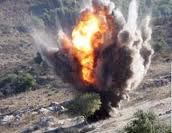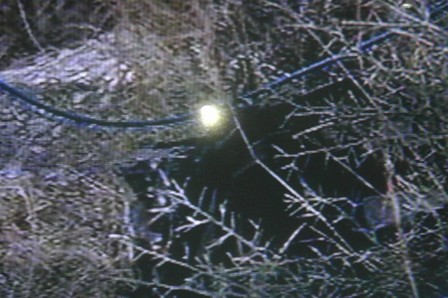Orphans, disabled still brunt of “Israeli” attacks on Al-Mabarrat Charity
Orphans, disabled still brunt of "Israeli" attacks on Al-Mabarrat Charity
Group founded by Fadlallah says war`s impact on children was far greater than physical damage
By Hani M. Bathish
Source: Daily Star, 17-2-2007
Interview
BEIRUT: The summer 2006 war with "Israel" caused extensive damage to numerous orphanages, schools, mosques and medical centers run by Al-Mabarrat Charity Association, founded by Hizbullah`s spiritual leader Sayyed Mohammad Hussein Fadlallah in 1978. The organization, which today has an extensive network of orphanages and schools in the South, Bekaa and the Southern suburbs of Beirut, has managed to re-house many displaced orphans and students in temporary facilities, either at public schools offered to them by the Education Ministry or other facilities they own.
The road to recovery is not an easy one. Offers to help rebuild these schools and orphanages flooded in from Arab and Gulf countries, but while blueprints have been drawn up, not one brick has been laid to date.
Mabarrat`s losses - which include destroyed buildings and equipment - total $11.3 million, according to a booklet issued by the charity. This includes eight institutions in the South and Beirut that were totally destroyed, among them schools and orphanages.
Dr. Mohammed Baker Fadlallah, the organization`s general manager, said the psychological and social impact on the disabled and the children cared for by the charity, as well as the impact on the families of the children and the charity`s staff, is far greater than the loss of brick and mortar.
"Al-Mabarrat is the largest organization of its kind in Lebanon and unique in the variety of care and support it offers," Fadlallah said. Initially Al-Mabarrat started by setting up orphanages, then in 1987 it began setting up its own schools and expanded its activities.
"Al-Mabarrat has 15 schools caring for 19,000 students as well as four vocational training schools, six orphanages and the Hadi Institute for Visual, Auditory and Speech Impairment among others," Fadlallah said.
"We sustained the greatest damage during the July war, a large number of our institutions were destroyed in the South and some in Beirut," Fadlallah said.
But defiance in the face of "Israeli" aggression is the association`s new mantra. "We want to rebuild what was destroyed because we believe that education is a priority in building the human being," Fadlallah said, adding that reconstructing the institutions will represent a triumph of knowledge over the desire to destroy.
He said the charity`s priority has been the students and orphans displaced by the war, many of whom were relocated temporarily to other facilities.
"Students at Al-Ishraq school in Bint Jbeil were relocated to Hanin public school, those at Isa Ibn Maryam school in Khiam were relocated to Dibeen public school in Marjayoun, while orphans at Al-Nabi Ibrahim orphanage in Khiam were moved to an orphanage set up in Nabatiyeh and those at Imam Ali Orphanage in Maaroob were moved to a building that was being prepared as a vocational school for girls in Juwayah," Fadlallah said.
He said one sign of the vital service Al-Mabarrat is offering students is that the number of students in each of the schools that were destroyed has gone up from 500 to 600 - an indication that these schools are helping the people of the South to persevere and remain steadfast.
Fadlallah said that Mabarrat, with assistance from UNICEF, set up a psychological support program to help children recover from mental trauma they suffered from the war. Children are encouraged to overcome that trauma through artistic activity, theater and handicrafts.
"Some young kids lost their memory due to the war. There were two young girls who did not utter a single word for two months [after the war], through psychological treatment they recovered and continued their education," Fadlallah said.
Mabarrat`s teachers and staff have received training on how to detect the war`s psychological impact on children, allowing them to better identify and address the problem.
Fadlallah said that Qatar, which promised to rebuild the towns of Khiam and Bint Jbeil after the "Israeli" war last summer, has also pledged to rebuild Mabarrat`s schools in these towns. A contractor has been appointed and blueprints have been drawn, he said, adding that work is due to begin soon.
Fadlallah said a promise from the Embassy of the United Arab Emirates to fund the reconstruction of a boarding school and orphanage in Maaroob has not been fulfilled to date. The UAE said it would rebuild schools demolished during the war.
"They were about to assign a contractor, then they stopped with no explanation given ... We got two letters from the [Lebanese] Education Minister attesting that the institution is in fact a boarding school, but it has been a week since we got any reply," Fadlallah said.
He said the Walid bin Talal Association promised to rebuild Mabarrat`s Al-Abbas Social and Medical Centre in Yatar in the South.
Asked who the largest contributor to Mabarrat is, Fadlallah said: "Qatar - they pledged to rebuild the two schools in Bint Jbeil and Khiam at a cost of $6 million - would be the largest contributor to help us rebuild. Qatar has also given students in these school books and school expenses."
International humanitarian agencies are also offering to equip schools with computer labs, libraries and playground equipment. Bahman Hospital, which suffered slight damage, was repaired by donations from the Islamic Republic of Iran.
"Our goal is to care for people. We have no political aims, we aim to meet a need for education and to help the disabled. Not a single country has contributed to building any of our institutions," Fadlallah said.
Generous patrons, among them Lebanese expatriates and Arab nationals in the Gulf, have helped build many of Mabarrat`s institutions. "The trust people have in the founder of the charity is what prompts them give generously," Fadlallah said.
He said Bahman Hospital was built by a Kuwaiti philanthropist, while former British Ambassador James Watt had given generously to the Hadi Institute for Visual, Auditory and Speech Impairment. The institution offers specialist care for over 400 children and was also damaged during the war.
Asked how those who wish to donate may help Mabarrat in its work, Fadlallah said: "Once the buildings are rebuilt, we will need equipment. Those children whose homes were destroyed, or whose fathers` lost their jobs, need help in paying tuition fees and buying books for at least one to two years until they get back on their feet again and rebuild their lives."
Fadlallah said that the number of orphans has also increased since the war: "In Nabatiyeh we had 140 orphans, now that number has gone up to 240, most lost parents during the war."
He said the organization will accept donations from any source provided the donor does not impose any terms on them.
During the war Mabarrat lost three of its employees, eight of its students, 17 mothers and fathers (of students), 31 brothers, sisters, grandparents or uncles of students - all were killed by the conflict.
Over 90 employees lost their homes during the war, while 357 of parents of students lost their homes.



